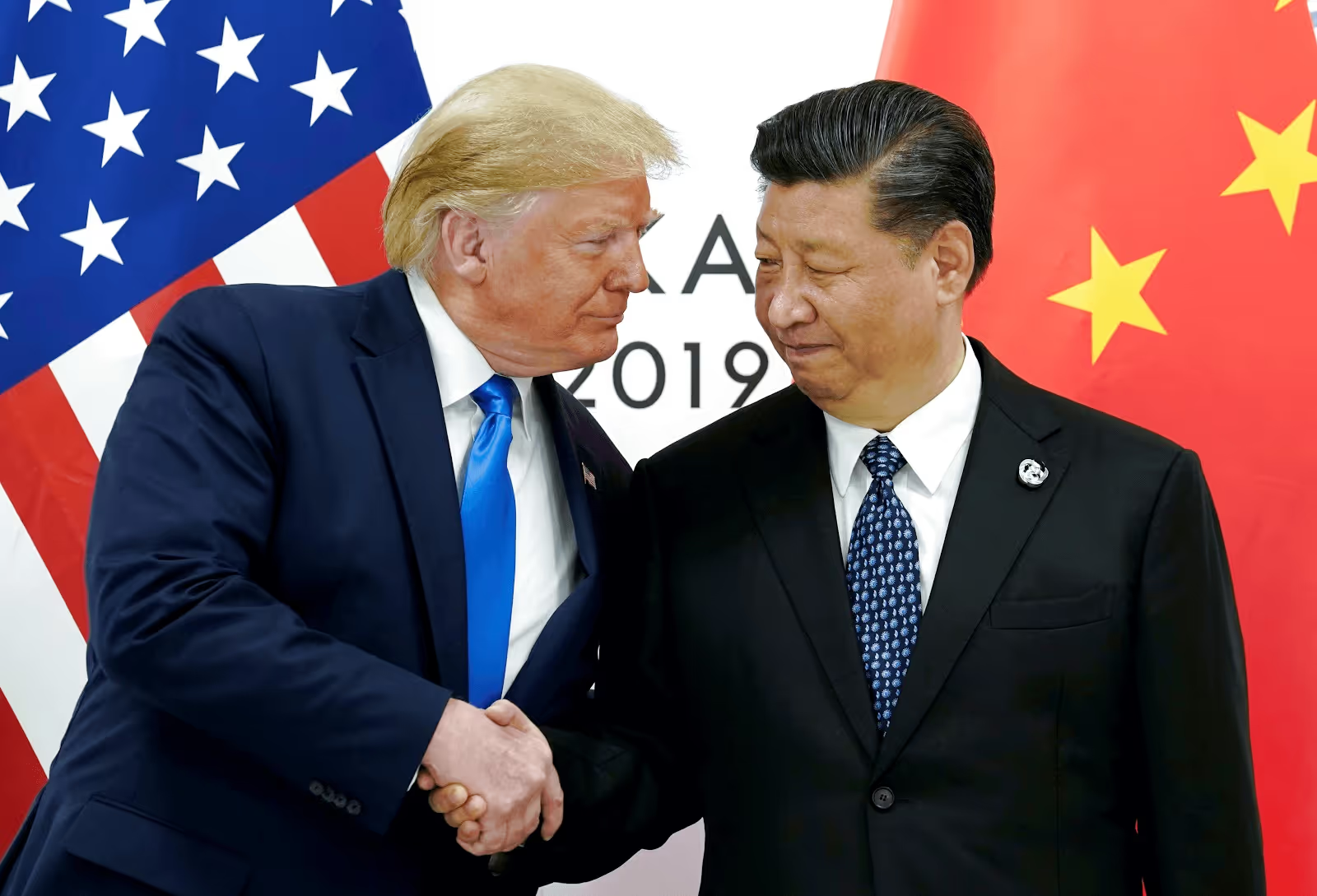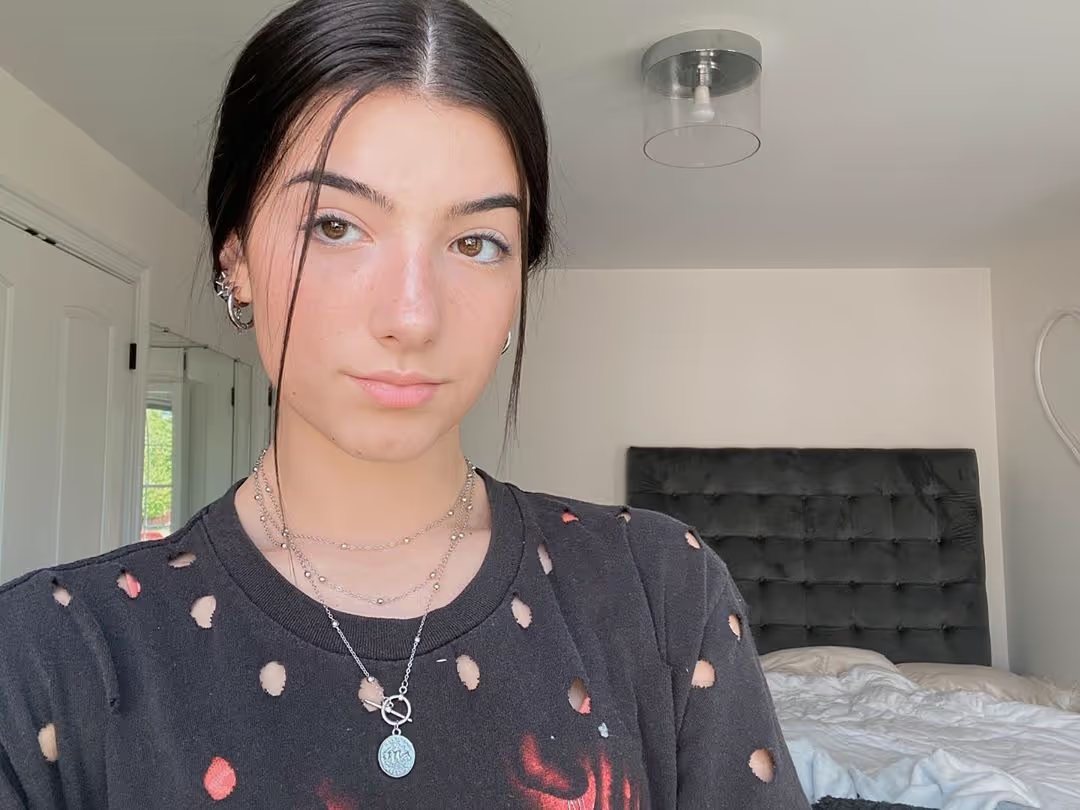“No one has manipulated better or taken advantage of the United States more. Nobody’s cheated better than China.”
That was how US president Donald Trump summed up his country’s relations with China in November of last year.
The world’s most populous nation has been a bugbear for Trump since he came to power in 2016. But whatever you think of him, he’s not alone in being critical of China.

US military leaders have long warned of growing Chinese assertiveness. So too have business leaders that have regularly had their intellectual property stolen, something that is estimated to cost the US up to $600 billion a year.
All of this has led, along with an ongoing trade war, to a growing reluctance to engage with Chinese tech companies.
The UK’s move not to use Huawei’s technology in its 5G network was one sign of this. A more striking decision was an order issued by Trump to force TikTok to sell off its US entity at the start of August.
Deep state
Before diving into the epilepsy-inducing world of TikTok, it’s worth delving a bit deeper into the technological tensions that exist between the US and China.
The US government has long argued against using Chinese tech — whether it be mobile phones or software — on the basis that it can be used by China’s intelligence services.
For instance, Trump justified his TikTok decision by saying that the app collects huge swathes of user data which could be used to “allow the Chinese Communist Party access to Americans’ personal and proprietary information.”

There is a chance that this is true. Chinese law means that any data stored in China can be accessed by the government. The government also plays a big role in controlling how tech firms operate.
For its part, TikTok claims that it never keeps US user data in China. Instead, it is kept in a facility in Virginia and backed up in Singapore. This would mean it is not subject to Chinese data laws.
Such claims, even if true, may not convince everyone. ByteDance, TikTok’s parent company, has already been forced to make overtures to the Chinese Communist Party (CCP) several times.
On one occasion, CEO Zhang Yiming was forced to write that his firm had made a mistake and “didn’t realize that technology must be guided by core socialist values.”
Other firms have also shown evidence of collusion with the CCP, with WeChat probably being the most notable example.
A May 2020 study by the University of Toronto’s Citizen Lab found that ‘sensitive’ messages on the messaging app, which has close to a billion users in China, would be deleted without either user even knowing. Significantly, this was done for users who weren’t even in China or signed up to WeChat’s Chinese entity.
Tech wars
You may have read all of the above and thought, “yeah, but then the US does exactly the same thing.”
And you would be correct.
Although they aren’t censoring our WhatsApp conversations, US intelligence agencies undoubtedly work with tech firms to surveil people.
This doesn’t mean that US government talk of Chinese surveillance is irrational or hypocritical. You may spy on another country but that doesn’t mean you’re going to allow spies to act with impunity in yours.
Or in tech terms, you may be ok with a Silicon Valley conglomerate mining Americans’ data but that doesn’t mean you want a firm in Beijing doing the same.
Of course, a more cynical view of the TikTok debacle may be that it has nothing to do with national security and everything to do with money and US tech dominance.

As it stands, much of the global tech market is controlled by Apple, Amazon, Google, Facebook and Microsoft.
These companies don’t just enhance US prestige in the world, they also make a lot of money. Apple, for example, is now worth more than the entire UK index of top 100 companies by market cap combined.
If TikTok becomes the next big tech firm with global influence, it would be the first time that the US has seen its dominance in the industry challenged meaningfully.
And the challenge is real. TikTok reportedly generated revenues of $17 billion in 2019, a remarkable number given that it was only launched in 2016.
By way of comparison, Facebook made $272 million three years after it was founded. For Google, the equivalent figure was $86.4 million.
The never-ending stream of content
For those of you who have no idea what TikTok is (lucky you), it’s like a blend between YouTube, Instagram Stories and the now-defunct Vine.
Users share short clips of themselves that are often intended to be humorous or just a bit silly.
Some of these users are extremely popular.
TikTok’s most-followed account belongs to an American teenager named Charli D'Amelio. The 16 year old currently has over 80 million TikTok users following her account.

Like almost all social media companies, TikTok’s ‘secret sauce’ is the algorithm it uses to feed you content.
The speed at which this is done, combined with the fast-paced, bizarro content of the videos, makes you feel as though an endless stream of entertainment is being injected directly into your eyeballs. Which, of course, means kids love it.
Close to 100 million Americans have the app, the overwhelming majority of which are young people under the age of 30 — although a depressing 7 per cent of users are over the age of 50.
Whether you think the app is ridiculous or not, these are all impressive stats, so it’s easy to see why the US government wants to keep the firm in American hands.
The executive order
Trump’s executive order means that TikTok’s US entity must be sold or shut down by mid-September.
ByteDance has protested against the move, saying that TikTok poses no security threat and even released its code to prove that this was the case. Those efforts look to have been in vain.
Buyers are moving in, with media reports that Microsoft and Oracle are leading the pack. Twitter is also rumoured to be interested in the firm.
Microsoft and Oracle are reportedly bidding for control of TikTok’s entities in the US, Canada, New Zealand and Australia.
Along with the UK, which is conspicuously absent from the list, these countries are all part of the Five Eyes intelligence sharing alliance. Whether this is coincidental or not is still up in the air.
What will it mean for the stock market?
Assuming they can meet the deadline, the odds are that a tech firm is going to end up acquiring TikTok.
Not only would the app be a better fit with such a company but it’s going to cost a lot of money — potentially $50 billion — to pay for it. Tech firms are more likely to be able to access that kind of cash.
Whoever does end up buying the business will ultimately be in the advertising business.
It can be easy to forget it but Facebook, YouTube, Twitter and the Google browser all generate money by mining your data and then using it to sell you stuff.
TikTok appears to be the same. It does make some money from in-app purchases but much of its revenue comes from tailored advertising.
Microsoft and Oracle have arguably lagged behind some of their rivals in the data mining, targeted ad space. But both have also made moves to remedy that fact.
Oracle has bought several data-driven marketing businesses in the past six years, including the marketing technology firm Grapeshot in 2018.
Microsoft has behaved similarly, most notably by acquiring LinkedIn, a social media site for professionals, in 2016.
Quite how an acquisition would affect either of these two firms’ stock prices will depend on the price they pay.
If the market thinks it’s too high, their share price is likely to fall in the short term. If the market thinks they got a bargain, it’s likely to rise. This in turn depends on how excited investors are about the new revenue stream.
For this to be sustainable, however, TikTok would have to remain popular and increase its revenues. This seems possible in the short term but a mixture of competition and human fickleness could make it trickier as time goes by.
Facebook has recently launched Reels on Instagram, which is very similar to TikTok. So similar, in fact, that many have claimed it is simply a rip-off of the app.

Still, if Reels is a hit, it could easily pull users away from TikTok and prevent it from growing. This is exactly what led to Vine being discontinued in 2016, with Instagram and other streaming sites pulling users and creators away from the service.
Another factor to be aware of is people getting bored.
If you’ve been to dinner with other human beings lately, you’ve probably noticed that they can barely hold a conversation for 20 seconds without checking their phone.
TikTok often feels like an attempt to cram as much excitement into your head as possible.
That has worked until now but, in a world of endless entertainment and ceaseless streaming, people are easily bored and quick to hop on to the next tech bandwagon.
If that were to happen, we may end up wondering what all the fuss about TikTok was in the first place.
Make your investments work a little bit harder with one of the UK’s leading commission-free trading apps. Freetrade has transparent charges, no hidden fees and is one of the only brokers to offer fractional shares in the UK.
This should not be read as personal investment advice and individual investors should make their own decisions or seek independent advice. This article has not been prepared in accordance with legal requirements designed to promote the independence of investment research and is considered a marketing communication.When you invest, your capital is at risk. The value of your portfolio can go down as well as up and you may get back less than you invest. Past performance is not a reliable indicator of future results.Freetrade is a trading name of Freetrade Limited, which is a member firm of the London Stock Exchange and is authorised and regulated by the Financial Conduct Authority. Registered in England and Wales (no. 09797821).



.avif)
.avif)







